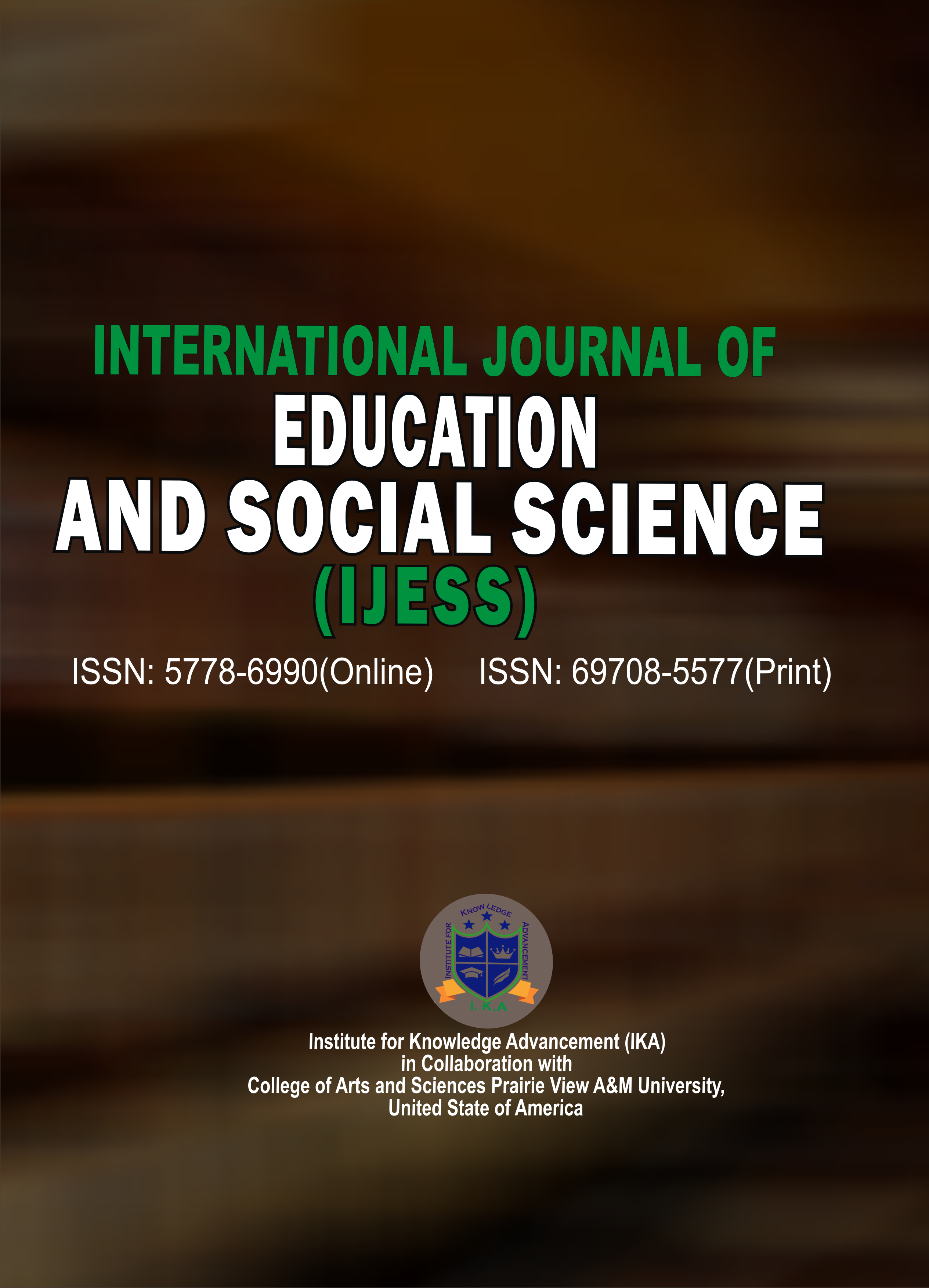INTERNATIONAL JOURNAL OF EDUCATION AND SOCIAL SCIENCE (IJESS)
Financial Development and Socioeconomic Outcomes in Nigeria: An Auto-Regressive Distributive Lag Approach
E-ISSN: 5778-6990
P-ISSN: 6790-5577
DOI: https://iigdpublishers.com/article/270
This research looked at the link between financial development and Nigeria's socioeconomic outcomes from 1990 and 2022. The World Bank's World Development Indicators and the Central Bank of Nigeria's Statistical Bulletin provided the data. The poverty rate is used to measure socioeconomic results, whereas stock market capitalization, credit to private sector, interest rate spread, broad money supply, and financial deepening are used as proxies for financial development. The individual series were tested for unit roots using the Augmented Dickey Fuller method. The diagnostics created mixed orders of I(0) and I(1) integrations, therefore the Auto-Regressive Distributive lag bound was used. Financial development and socioeconomic results do not have a long-term link, according to the analysis of the model's bound test result. Further regression results showed that financial deepening and stock market capitalization had a negative but significant connection with poverty. Broad money supply, on the other hand, has a negative and negligible impact on poverty rate in the current and previous year periods. The relationship between credit to the private sector, interest rate spread, and poverty rate, however, indicated positive and significant relationship both in the previous and second year period. Thus, it was shown that Nigerian socioeconomic results were significantly influenced by financial development. Therefore, it was suggested, among other things, that the federal government takes into account enacting progressive tax changes in order to more fairly divide wealth and finance social welfare initiatives meant to reduce poverty.
Nwikina Christian Gbarawae PhD, Nwankwo Nneka Uchenna PhD & Thankgod Tonye PhD, FMNES
Akintola, A. A, Oji-Okoro, I. & Itodo, I. A (2020). Financial Sector Development and Economic Growth in Nigeria: An Empirical Re-Examination. Central Bank of Nigeria Economic and Financial Review Volume 58/3
Akmil I., & Alpon S (2023). The effect of financial development on economic growth in high-income countries. Asian Economic and Financial Review, 2023, 13(3): 202-215.
Audu, N P & Okumoko, T P (2013). Financial Development and Economic Growth in Nigeria. European Journal of Business and Management. Vol.5, No.19, 2013
Azmeh, C (2021). The Effect of Financial Development on Economic Growth in Developing Countries.
Babar H, Muhammad N T, & Bahawal K (2022). Impact of Financial Development, Financial Liberalization and Economic Growth on Financial Instability: Evidence from Panel Data. Journal of Economic Impact 4 (2). 142-151
